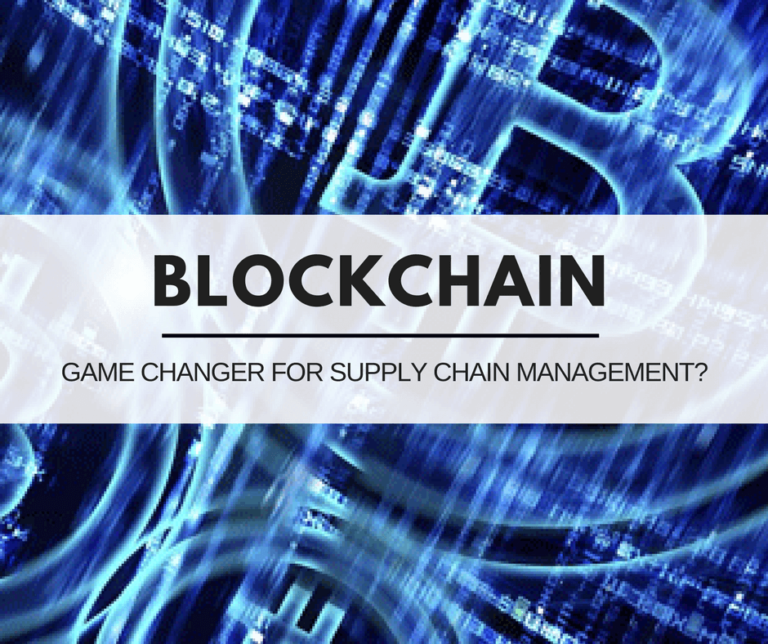Why Blockchain is a Game Changer for Supply Chain Management Transparency

From conducting payment and audits to tracking inventory and assets, blockchain technology will enable greater supply chain efficiency than ever before.
Blockchain – the technology behind the digital asset and payment system Bitcoin – has the potential to transform the supply chain.
In fact, some are calling it the most important invention since the Internet itself.
What is Blockchain?
Blockchain is a distributed database that holds records of digital data or events in a way that makes them tamper-resistant. While many users may access, inspect, or add to the data, they can’t change or delete it. The original information stays put, leaving a permanent and public information trail, or chain, of transactions (Investopedia).
Think of it like this: If the entire blockchain were the history of banking transactions, an individual bank statement would be a single “block” in the chain. Unlike most banking systems, however, there is no single organization that controls these transactions. It can only be updated through consensus of a majority of participants in the system (Re/code).
In short, blockchain is a record-keeping mechanism that makes it easier and safer for businesses to work together over the internet.
“Bitcoin can be used to record, track, and verify trades of virtually anything that holds value”
Jon-Amerin Vorabutra, VP of Process and Technology at Nova Molecular Technologies
Bitcoin is Only the Beginning
The most popular application of blockchain technology is Bitcoin, a currency system that has taken tech-savvy merchants by storm. The exciting thing is that the blockchain protocol can be used for non-currency purposes as well.
Thought it was initially intended for financial transactions, businesses of all kinds are getting creative with the blockchain ledger, as it can be used to record, track, and verify trades of virtually anything that holds value. From ride-sharing to cloud storage to voting, companies in all industries are beginning to see blockchain’s potential.
How Will Blockchain Technology Affect the Supply Chain?
If blockchain technology allows us to more securely and transparently track all types of transactions, imagine the possibilities it presents across the supply chain.
Every time a product changes hands, the transaction could be documented, creating a permanent history of a product, from manufacture to sale. This could dramatically reduce time delays, added costs, and human error that plague transactions today.
Some supply chains are already using the technology, and experts suggest blockchain could become a universal “supply chain operating system” before long. Consider how this technology could improve the following tasks:
- Recording the quantity and transfer of assets – like pallets, trailers, containers, etc. – as they move between supply chain nodes.
- Tracking purchase orders, change orders, receipts, shipment notifications, or other trade-related documents
- Assigning or verifying certifications or certain properties of physical products; for example determining if a food product is organic or fair trade
- Linking physical goods to serial numbers, bar codes, digital tags like RFID, etc.
- Sharing information about manufacturing process, assembly, delivery, and maintenance of products with suppliers and vendors
Benefits in a Nutshell
Regardless of the application, blockchain offers shippers the following advantages:
- Enhanced Transparency. Documenting a product’s journey across the supply chain reveals its true origin and touchpoints, which increases trust and helps eliminate the bias found in today’s opaque supply chains. Manufacturers can also reduce recalls by sharing logs with OEMs and regulators (Talking Logistics).
- Greater Scalability. Virtually any number of participants, accessing from any number of touchpoints, is possible (Forbes).
- Better Security. A shared, indelible ledger with codified rules could potentially eliminate the audits required by internal systems and processes (Spend Matters).
- Increased Innovation. Opportunities abound to create new, specialized uses for the technology as a result of the decentralized architecture.
Smart shippers are finding ways to leverage these innovations to increase profits and strengthen relationships across the supply chain.
They’re also partnering with forward-thinking service providers who value transparency and innovation, and understand blockchain’s potential.
Source: SupplyChain247